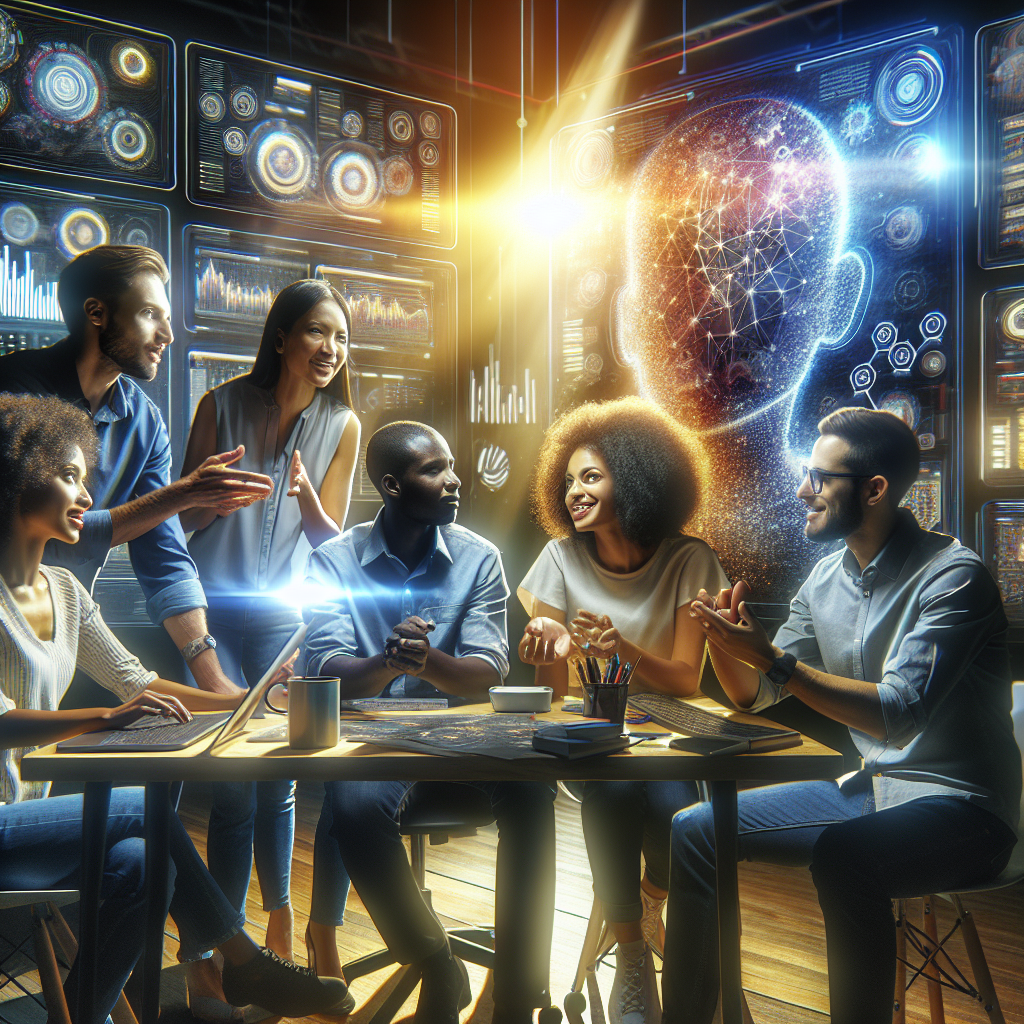The Hidden Truths of AI: 10 Secrets You Should Know It is a bed of roses or is it? What's good has another hidden side to it

The Hidden Truths of AI: 10 Secrets You Should Know
Artificial Intelligence (AI) has become a buzzword in today’s tech-driven world, often touted as the key to the future of industries ranging from healthcare to finance. However, beneath the surface of this technological marvel lies a set of lesser-known truths that are essential for anyone looking to understand the true nature and impact of AI. Here are 10 secrets about AI that can provide deeper insight into its complexities and challenges.
- 1. AI Bias is Hard to Eliminate Completely
- 2. AI Can Be Surprisingly Resource-Intensive
- 3. AI Isn’t Truly Autonomous
- 4. Data Privacy is a Major Concern
- 5. Explainability is a Challenge
- 6. AI Can Be Used for Creative Tasks
- 7. Adversarial Attacks Can Fool AI
- 8. AI is Changing the Job Market
- 9. Ethical AI is an Ongoing Debate
- 10. AI is Not Close to Human-Level Intelligence
- Conclusion
- The Hidden Truths of AI: 10 Secrets You Should Know by Peter Hanley
1. AI Bias is Hard to Eliminate Completely
One of the most significant challenges in AI development is dealing with bias. AI systems learn from data, and if the data used to train these systems is biased, the AI will inevitably reflect those biases. This can lead to unfair outcomes, particularly in areas like hiring, law enforcement, and healthcare. Despite ongoing efforts to create unbiased models, achieving total fairness remains elusive.
2. AI Can Be Surprisingly Resource-Intensive
Training large AI models, such as those used in advanced natural language processing, requires immense computational power, energy, and financial resources. For example, training a state-of-the-art language model can cost millions of dollars, consume vast amounts of electricity, and require access to specialized hardware like GPUs and TPUs. This high cost is a barrier for smaller companies and researchers who want to develop cutting-edge AI technologies.

3. AI Isn’t Truly Autonomous
Despite the hype surrounding AI, most systems today are not fully autonomous. They rely heavily on human intervention for design, training, and decision-making oversight. For instance, AI in autonomous vehicles still requires human input to handle complex scenarios, and many AI-powered customer service bots depend on humans to manage challenging interactions.
4. Data Privacy is a Major Concern
AI systems often require large amounts of data to function effectively. However, this raises significant privacy concerns, especially when dealing with personal or sensitive information. The collection, storage, and use of this data can lead to potential abuses, making data privacy a critical issue in AI development. Companies are now under increasing pressure to ensure that their AI systems are transparent and secure.
5. Explainability is a Challenge
Many AI models, especially deep learning models, operate as “black boxes,” making it difficult to understand how they arrive at certain decisions. This lack of transparency is a major challenge, particularly in fields like healthcare and finance, where understanding the reasoning behind a decision is crucial. The demand for explainable AI is growing, but achieving it without sacrificing performance is difficult.

6. AI Can Be Used for Creative Tasks
While AI is often associated with logical tasks, it’s increasingly being used in creative fields as well. AI can now generate music, write stories, and even create visual art. However, these creations often require human guidance to ensure quality, and there is ongoing debate about the role of AI in creative industries.
7. Adversarial Attacks Can Fool AI
AI systems are vulnerable to adversarial attacks, where small, imperceptible changes to input data can cause the AI to make incorrect decisions. For instance, a slightly altered image might fool an AI into misidentifying an object. This vulnerability is a significant concern, particularly in security-sensitive applications like facial recognition and autonomous driving.
8. AI is Changing the Job Market
AI is automating many tasks traditionally performed by humans, leading to both the creation of new job categories and the displacement of others. Repetitive or data-intensive roles are particularly at risk, while jobs in AI development and management are on the rise. The impact of AI on employment is complex and multifaceted, with ongoing debates about how to manage this transition.
9. Ethical AI is an Ongoing Debate
The ethical implications of AI, from its impact on employment to its use in surveillance, are hotly debated. There are growing calls for stricter regulations and ethical guidelines to govern AI development and deployment. As AI becomes more integrated into society, ensuring that it is used responsibly and ethically is a critical challenge.
10. AI is Not Close to Human-Level Intelligence
Despite advancements, current AI is far from achieving general intelligence akin to human capabilities. Most AI systems are specialized in narrow tasks and lack the broad understanding and reasoning abilities of humans. While AI can excel in specific areas, it is still a long way from matching the full range of human cognitive abilities.
Conclusion
These ten secrets highlight the complexities and challenges that come with the development and deployment of AI systems. As AI continues to evolve, it’s crucial to approach it with a clear understanding of its limitations, potential risks, and the ethical considerations that must guide its use.

The Hidden Truths of AI: 10 Secrets You Should Know by Peter Hanley
5 AI skills you need to stay ahead of 97% of the public
The Millionaires apprentice now comes with a complete set of tools